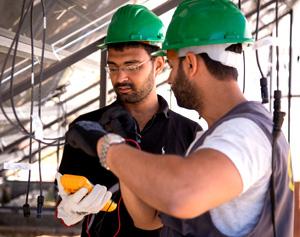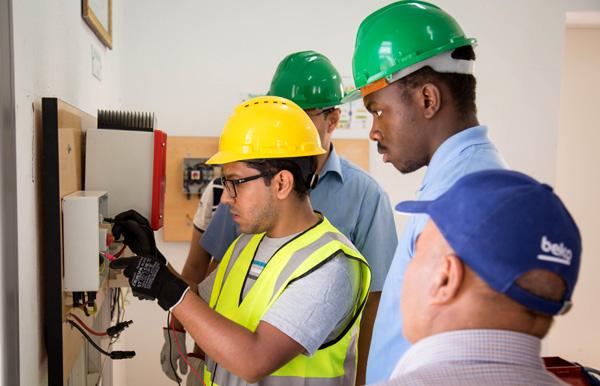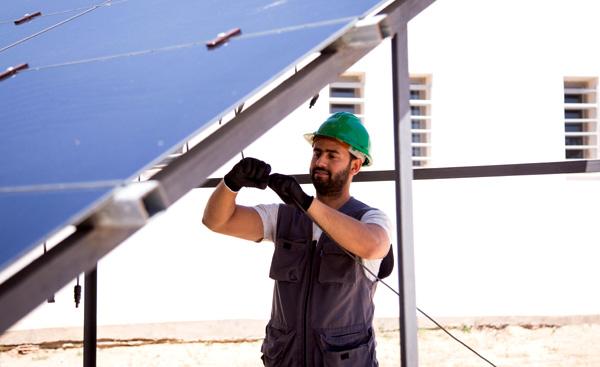Context
By 2030, the Tunisian Solar Plan (TSP) aims to meet one-third of the country’s total electricity demand from renewable sources. In particular, it also aims to capture the substantial and as yet untapped potential of solar energy. However, the lack of skilled workers poses a serious obstacle to this plan and is impacting the quality of RE and PV installation, maintenance and operation.
With more than 30% of graduates currently seeking employment, many of whom have technology-based qualifications, employment promotion is the Tunisian Government’s main priority. Attempts to solve the problem – including private sector training initiatives, cooperation between vocational training centres and local companies or the provision of PV training platforms – have so far lacked coordination. The country requires structured, practice-oriented and employment-centred education and vocational training that is mainstreamed into the national education system in compliance with requisite quality standards.
Objective
The education and training courses available for the practice-oriented and needs-based qualification of PV specialists are improved. Training institutions network and cooperate closely.


